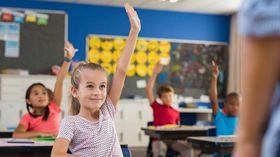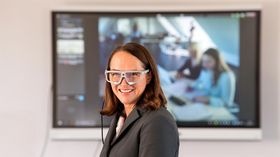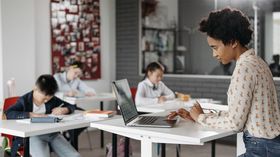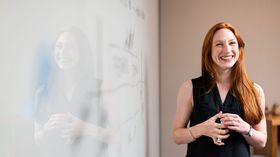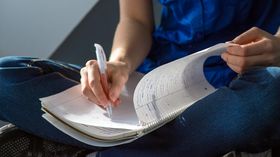ForSynZIB – Research Syntheses in Learning and Instruction
Research syntheses promote the transfer of scientific knowledge into practice by bridging the gap between educational research and educational practice. They not only provide an overview but also offer decision-making foundations. As a result, they facilitate access to educational research for teachers, schools, parents, administrators, and policymakers. [read more]
Topics of our Research Syntheses
- Promoting Teacher Self-Efficacy (completed)
- Gender Differences in Educational Contexts (completed)
- Parental Involvement (completed)
- High-Achieving Students (completed)
- Digital Media (completed)
- STEM Schools (completed)
- School Inspection (completed)
- Self-regulated Learning (completed)
- Digital Reading
lernen:digital | Transferstelle & joint project DigiProMIN
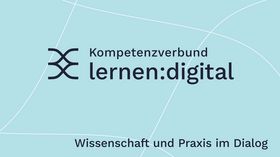
The lernen:digital competence network designs the dialogue between research and practice for the digital transformation of school and teacher professionalization. At the network's transfer center (Transferstelle) we detect research gaps and focal points. In the joint research project DigiProMIN we develop a sustainable strategy for digital STEM education.
InstaClone – A lifelike social media educational tool
The fully controllable social media tool InstaClone gives students and teachers the opportunity to become aware of the dynamics behind algorithms and the reach of posts. By discussing and understanding them in a better way, students develop useful skills to better classify content and actively shape the digital future. [read more]
InnoLab-N – Learning to shape a sustainable future
Sustainability is the core of the InnoLab-N school pilot project. By making use of innovative learning settings and opportunities to shape their own learning process, students develop important transformation skills on the way to a digital and sustainable future. An evaluation concept, we specifically designed for this purpose, explores which approaches can serve as models for schools in the future. [read more]
Teacher-student interaction
Based on video recordings of math and German lessons, the project takes a closer look at the conditions of teacher-student interactions. While mainly taking into account the migration background of students the secondary analyses conducted, also include the students' perceptions of different teaching characteristics. [read more]
Knowledge Trnsfer in the #twlz
How does science communication work in the virtual teacher's lounge “Twitter-Lehrerzimmer”, who tweets what, and how? And what research findings actually reach the classroom? This project delves into the dynamics of the German speaking Twitter teacher's community and provides insights for successful science practice transfer on social media. [read more]
Interaction II – Students through Teacher Eyes
Interaction II puts the focus on the behavior of teachers in the classroom: How do they distribute their attention? How do they appraise their students? By making them aware of typical behavioral patterns, the findings obtained through eye tracking allow teachers in training to reflect on their own diagnostic behavior. [read more]
Ceco – Classroom experience, characteristics and outcome
Ceco pplaces multidimensional educational goals at the center of attention. How do teachers translate them into practice in the classroom? Based on PISA data, the project contrasts the perspectives of teachers and students and thus provides relevant information on how multidimensional educational goals can be conveyed in the classroom. [read more]
COSIMA – Diagnostic skills in simulation-based learning environments.
In various sub-projects, COSIMA analyses how simulation-based learning environments can deployed to promote the diagnostic competence of teachers in training. A meta-analysis summarises and classifies recent findings. Based on this COSIMA develops possible specifications for the use of simulation-based learning environments. [read more]
Clearing House Unterricht – Scientific evidence for teacher education
The Clearing House Unterricht communicates findings from educational research to teacher educators in a target-group oriented way. A variety of formats gives educators insight into current research on STEM education, enabling them to base their teacher training on scientific evidence. [read more]
Teacher competencies – Well prepared for the classroom
Cognitive characteristics, motivation, and self-concept – these and other factors make the competence of a teacher. Using secondary analyses, the project investigates the interplay between the various characteristics and determines which factors have a positive impact in the classroom. The results provide important insights for improving teacher education in the future. [read more]
School Characteristics and Teaching – Optimizing the working environment for teachers
What role do characteristics such as school climate, staff composition and collaboration play in the quality of teaching? The project shows how government and school administrators can shape the working environment for teachers and thus systematically improve the quality of teaching in schools.[read more]
BilWiss-UV Development and outcomes of educational science knowledge
Using a specially developed test, BilWiss-UV shows that prospective teachers benefit from educational science knowledge, particularly in coping with stress and emotional exhaustion. At the same time, the results open up possibilities for optimising teacher training and making it more practice-oriented. [read more]



